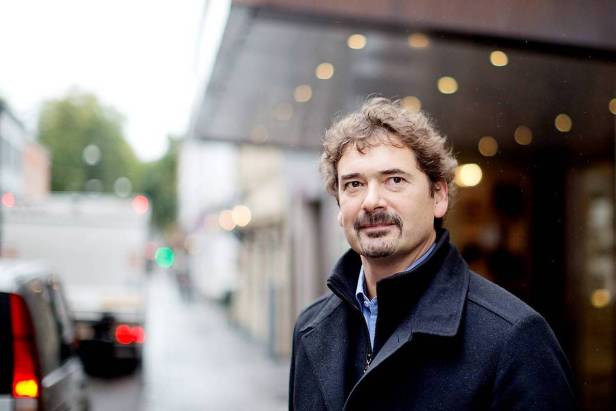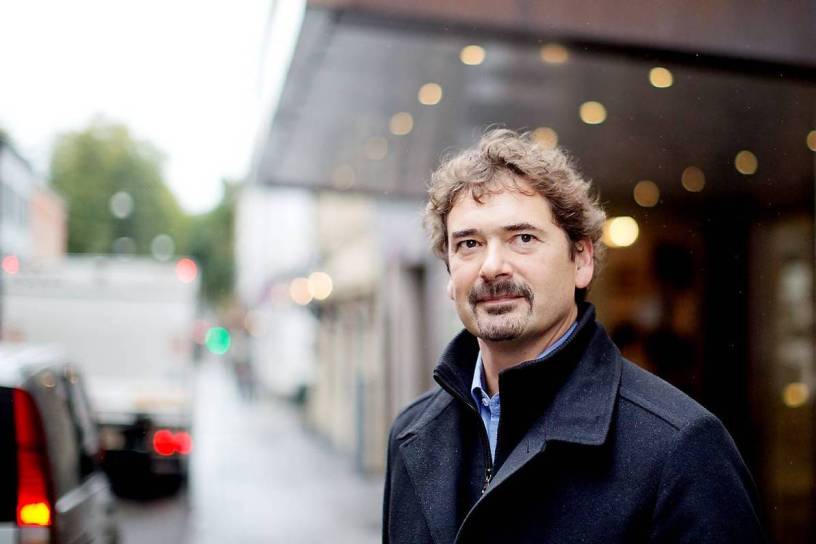Vivaldi browser has taken the world of internet browsing by storm, and only months after its initial release it has found its way into the computers of millions of power users. In this interview, Mr.Jon Stephenson von Tetzchner talks about how he got the idea to create this project and what to expect in the future.

Bill Toulas (BT): First, give us a (professional and educational) background of yourself, what exactly is it that you do in Vivaldi, and how did you serve Opera in the past.
Jon Stephenson von Tetzchner (JST): I am born in Iceland. I studied computer science at the University of Oslo. My primary focus was user interfaces and usability. I did my masters at Telenor Research and that is where Opera was born as well. I worked at Telenor Reseach two years after my studies, before starting up Opera. I was CEO of Opera for 15 years. After leaving Opera, I had no plans to do another browser, but two years after leaving Opera I decided the world needed a different browser and Vivaldi was born. I am CEO of Vivaldi.
BT: Can you tell us why you had to leave Opera in a nutshell?
JST: For 7 years we had had a difficult situation at Opera as we were very unlucky with our investors. Some of them did not believe in the company and believed the best thing was to set up a big for sale sign. I did not agree with that as I believed the right thing was to focus on building great products and a great company. After 7 years of fighting, I was tired and decided to give others the chance to run the company, hoping it would allow the company to continue growing. Sadly I was wrong and the company is now being sold or at least the browser part as the company has turned into an ad company instead.
BT: How did you decide to found “Vivaldi Technologies” and what was the initial goal of this decision?
JST: When I left Opera, my thinking was that I would never build another browser. Building browsers is hard and clearly I had an affinity for the Opera browser as well. Then Opera Software management made a big change that changed that. They threw away 19 years of work, the core code of Opera, Presto. They also changed the product philosophy and decided to go for a browser that was more similar to the rest of the browsers, being void of features and differentiation. This left a big void in the market as users that had chosen Opera did no longer have a browser of their choice. I had similar pains myself as Opera no longer satisfied my needs. Thus the need for a new browser had arisen; a browser made with the user in mind.
The goal of Vivaldi is to make a browser that is easy to use, rich in features and with a lot of options. We understand that we are all different and equal. We all deserve a browser that is tailored to our needs. Vivaldi is just that; a browser with a lot of features and a lot of options. Vivaldi can grow with your needs and adapt to your requirements. In this way Vivaldi is quite unique.
BT: How many people are working for Vivaldi Technologies, just to get the perspective of the size of the company?
JST: At this time we are 36. We are very much a startup, but we are also growing.
BT: Is the company solely dedicated to the development of the Vivaldi browser, or do you plan to release more products as well?
JST: Our focus is very much Vivaldi. At the same time we are redefining what a browser is. Clearly the main focus of the browser is to browse the Internet and we provide all the tools you need to be able to do that quickly and efficiently and pleasurably as well. However, we are also adding features such as e-mail and there is a lot more coming.
BT: From the perspective of a businessman, how does someone make money out of an internet browser development project?
JST: The browser is provided for free. However, we generate revenues from the included search partners and some of the bookmarks. All our deals are revenue share, so we focus on selecting partners that our users want.
BT: Since Vivaldi aims at the power users, and as this user category is limited, how high do you reckon that the popularity of Vivaldi can reach? Do you have a realistic target of the market share percentage?
JST: In many ways Vivaldi is what Opera used to be; a company that focuses on the user. Opera reached 350 million users total, although most of them were using Opera Mini. Our short term goal is to reach a few million users and then we take it from there.
BT: Would you say that Vivaldi’s most direct competitor is Opera, or are the two aiming at a different market?
JST: We are targeting a very different audience. That is the reason why Vivaldi was needed in the first place. If Opera had kept on the same path, there would have been less need for Vivaldi.
BT: How many former Opera employees are currently working on Vivaldi and in what sectors?
JST: More than half the staff are former Opera employees. This include tech people, sales, marketing and HR.
BT: Vivaldi already boasts some unique features that aren’t available in any other browser. Any more aces up your sleeves for the future versions?
JST: Very much so. We have a long list of features we are working on and have in the pipeline. We are also getting a lot of feedback from our users as to what they want… and we listen.
BT: Do you plan to release a more “simplified” version of Vivaldi aiming for the wider audience that doesn’t like to fiddle with too many options?
JST: No. In fact we believe Vivaldi is likely to be loved by most all, just the way it is. You can download Vivaldi and enjoy the fresh look and some of the basic functionality, such as speed dials, zooming and mouse gestures. The point is not that Vivaldi can not be used by less technical people, but they are less likely to find it as they are less likely to download a browser at all. However, their technical friends can help by installing Vivaldi and giving them a quick introduction to some of the features. There is a lot of people that could make use of the wealth of features Vivaldi has to offer.
BT: Do you plan on releasing an Android or iOS version of Vivaldi? What is the estimated date of these releases and how would they be different from the currently most popular mobile browsers?
JST: Yes, we plan mobile versions, starting with Android. This has been in the works, but will take some time. Next year is likely.
The focus of Vivaldi is to be fresh, with a lot of features and options. We will bring that to the mobile as well.
BT: Vivaldi browser is partly open source, with many components being proprietary. Do you plan on opening more components and letting more people from the community step in the development?
JST: The whole of Vivaldi´s C++ code is open and people are already modifying the HTML code. We aim to make it easier for people to add and modify the web based user interface.
BT: If you had to pursuade a person on why to use Vivaldi over any other browser in just one sentence, what would that sentence be?
JST: Try it out and you will find that it feels like it is made for you and it was!
BT: Are you planning on taking up a new “download challenge” for Vivaldi this time?
JST: You never know. 🙂
BT: Version 1.4 of the browser just came out and it brought many things for the users to be happy about. Anything that you can share with us about the next step(s) of the project?
JST: We will continue to develop the browser. Clearly mail has been announced, but there is a lot more coming soon… 🙂
You can download Vivaldi browser for Linux from the official website : https://vivaldi.com/



When a CEO leaves a company, usually he is fired. Who are those “unknown” they, who changed the philosophy of Opera, behind the CEO’s back? Today’s Opera is based on Chromium, is Vivaldi based on Presto? No, on Chromium. But Opera has all the features a browser is supposed to have, while Vivaldi doesn’t have, meaning cannot create the code. What can Vivaldi do, if someone else would release the same Vivaldi with other bookmarks and other search partners? For every Vivaldi release, a similar Vivaldi can be released.
LikeLike
Vivaldi is mostly open source, so yeah someone could create a fork out of it, but what are you saying exactly? That we shouldn’t use open source software, or that it is stupid for those who release open source? By the way, Chromium and Firefox are also open source. Just saying… And also, what does “Opera has all the features a browser is supposed to have” even mean? That is completely subjective. Should we ban all other browsers and all the “extra” features that come with them because someone called “mn” thinks Opera is perfect the way it is?
LikeLike